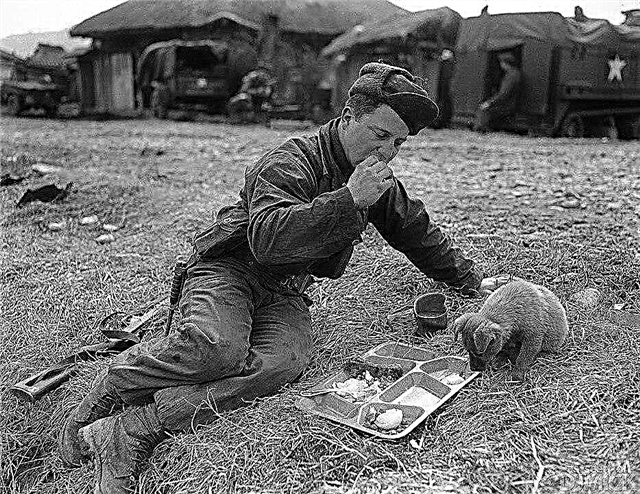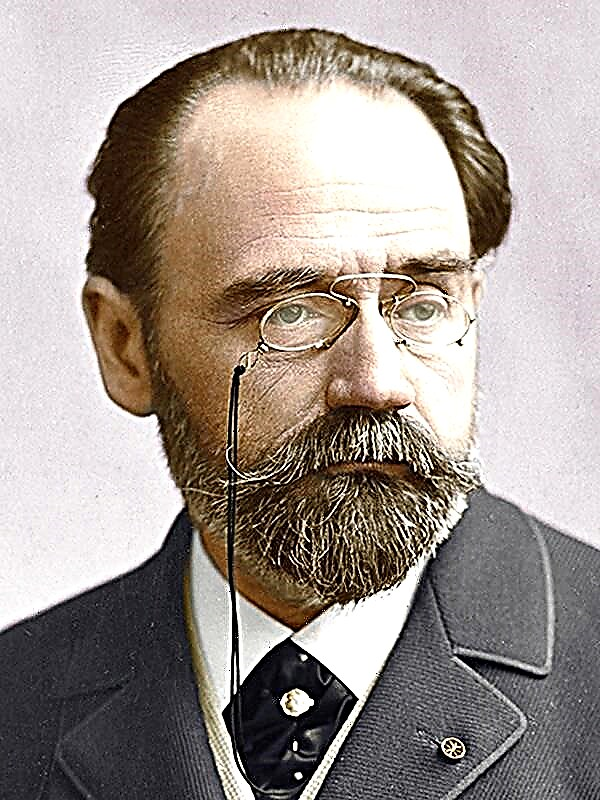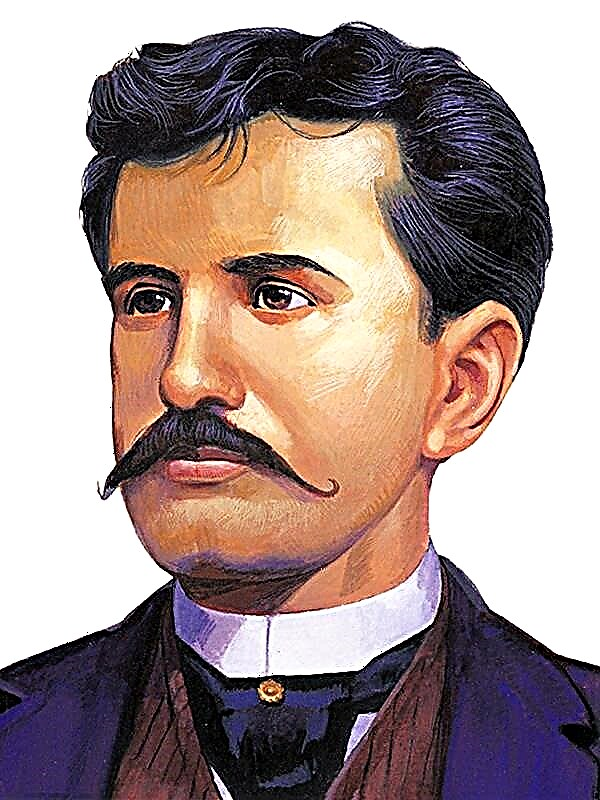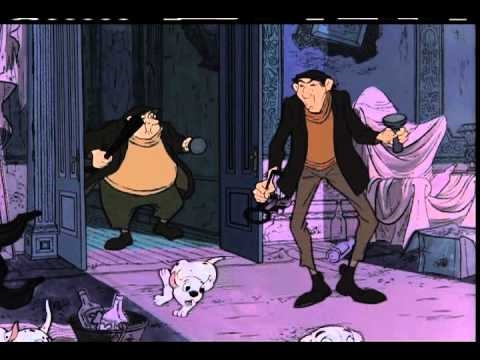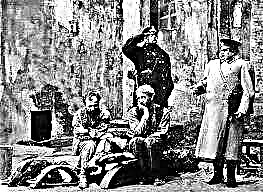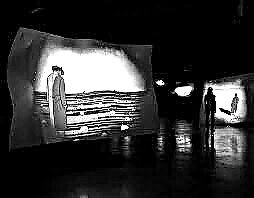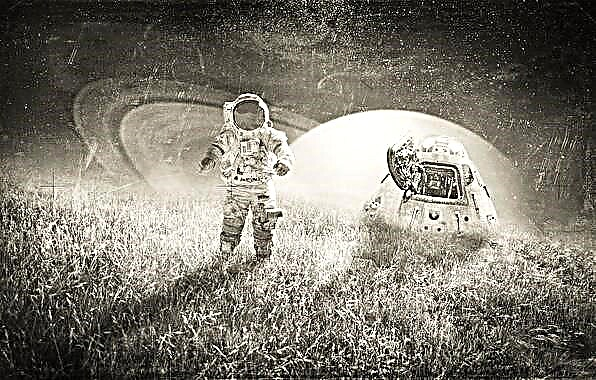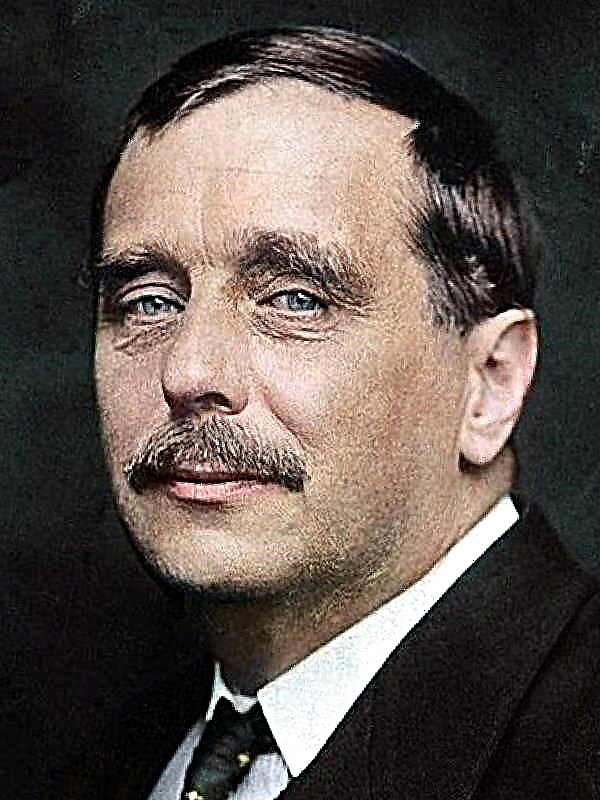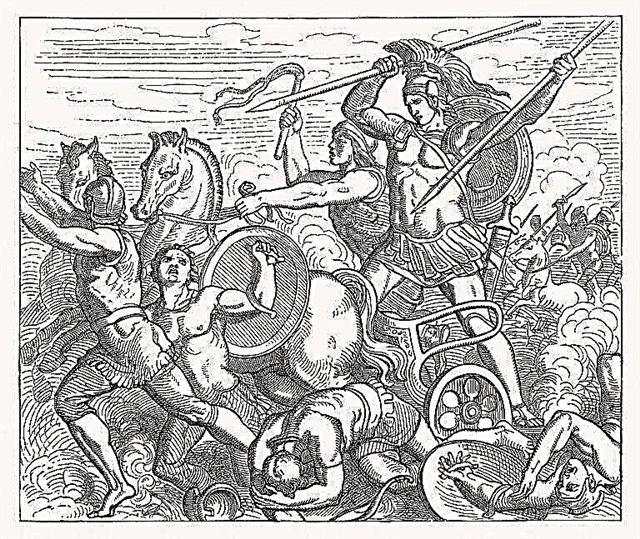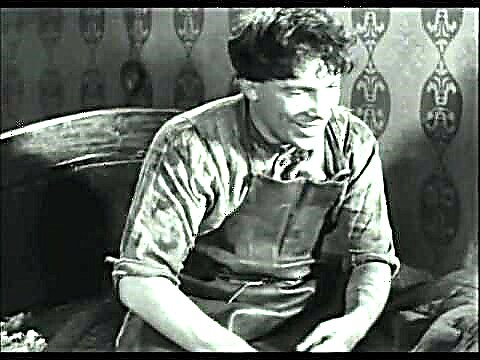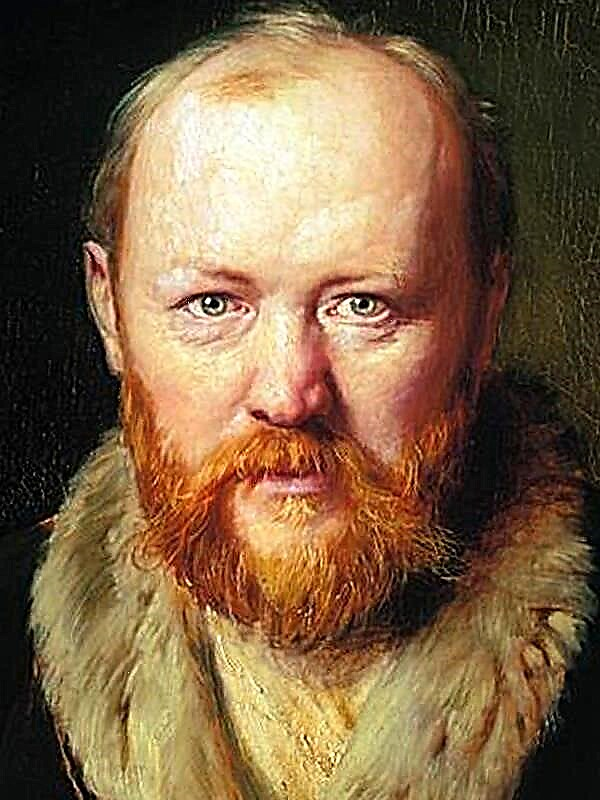In the peasant's hut terrible grief: the owner and breadwinner Proclus Sevastyanich died. The mother brings the coffin for her son, the father goes to the cemetery to hollow out the grave in the frozen ground. The widow of a peasant, Daria, sews a shroud to her late husband.
Fate has three difficult parts: to marry a slave, to be the mother of the son of a slave, and to submit to the slave to the grave — all of them fell on the shoulders of the Russian peasant woman. But despite the suffering, "there are women in Russian villages," to whom the dirt of a miserable situation does not stick. These beauties bloom to the world in wonder, patiently and evenly enduring both hunger and cold, remaining beautiful in all clothes and dexterous to all work. They do not like idleness on weekdays, but on holidays, when a smile of fun drives the labor seal from their faces, you can’t buy such hearty laughter as theirs. The Russian woman "will stop the galloping horse, enter the burning hut!". In it, one feels both inner strength and strict activity. She is sure that all salvation consists in work, and therefore she is not sorry for the wretched beggar, walking without work. She is fully rewarded for her work: her family does not know the need, the children are healthy and well-fed, there is an extra piece for the holiday, the hut is always warm.
Such a woman was Daria, the widow of Proclus. But now grief has withered her, and no matter how hard she tries to hold back her tears, they unwittingly fall on her quick hands, stitching the shroud.
Having reduced to the neighbors the forgotten grandchildren, Masha and Grisha, the mother and father dress the deceased son. In this sad case, no unnecessary words are said, no tears come out - as if the harsh beauty of the deceased, lying with a burning candle in her head, does not allow crying. And only then, when the last rite is completed, the time comes for lamentations.
In a harsh winter morning, the Savraska takes the owner on his last journey. The horse served the master a lot: both during peasant work, and in the winter, going with Proclus to the cab. Pursuing carriage, rushing to deliver the goods on time, and Proclus caught a cold. No matter how the breadwinners were treated, they doused with water from nine spindles, drove into the bathhouse, threaded through a sweaty clamp three times, lowered them into the hole, laid them under the chicken rooster, prayed for him a miraculous icon - Proclus did not rise.
The neighbors, as usual, cry during the funeral, pity the family, generously praise the deceased, and then go home with God. Having returned from the funeral, Daria wants to regret and caress the orphaned children, but she does not have time for affection. She sees that there is not a log of wood left at home, and, having again taken the children to her neighbor, she goes to the forest all on the same savraska.
On the way through the plain glistening with snow, tears appear in Daria's eyes - it must have come from the sun ... And only when she enters the grave rest of the forest, a “deaf, crushing howl” breaks out of her chest. The forest listens indifferently to widow moans, hiding them forever in its unsociable wilderness. Without shedding tears, Daria begins to chop wood “and, full of the thought of her husband, calls him, speaks with him ...”.
She recalls her dream before Stas's day. In a dream, an incalculable army surrounded her, which suddenly turned into rye ears; Daria appealed to her husband for help, but he did not go out, left her alone to reap the ripened rye. Daria realizes that her dream was prophetic, and asks her husband for help in the overwork that is now awaiting her. She presents winter nights without a sweet one, endless canvases that weave to marry her son. With thoughts about his son, fear comes that Grisha will be illegally sent to recruits, because there will be no one to intercede for him.
Putting firewood on firewood, Daria is going home. But then, automatically picking up an ax and quietly, intermittently howling, he approaches the pine tree and freezes under it "without a thought, without a moan, without tears." And here the frost-voivode, approaching her possessions, approaches her. He waves an ice mace over Daria, beckons her to his kingdom, promises to sip and warm ...
Daria is covered with sparkling hoarfrost, and she has a dream about her recent hot summer. She sees that she is digging potatoes in stripes by the river. With her children, beloved husband, a child beats under her heart, which should be born by spring. Having fallen away from the sun, Daria watches as the cart, in which Proclus, Masha, Grisha is sitting, is leaving further and further ...
In a dream, she hears the sounds of a wonderful song, and the last traces of flour disappear from her face. The song quenches her heart, "there is a limit in her continued happiness." Oblivion in deep and sweet peace comes to the widow with death, her soul dies for grief and passion.
The squirrel drops a lump of snow at her, and Daria freezes "in her enchanted dream ...".

